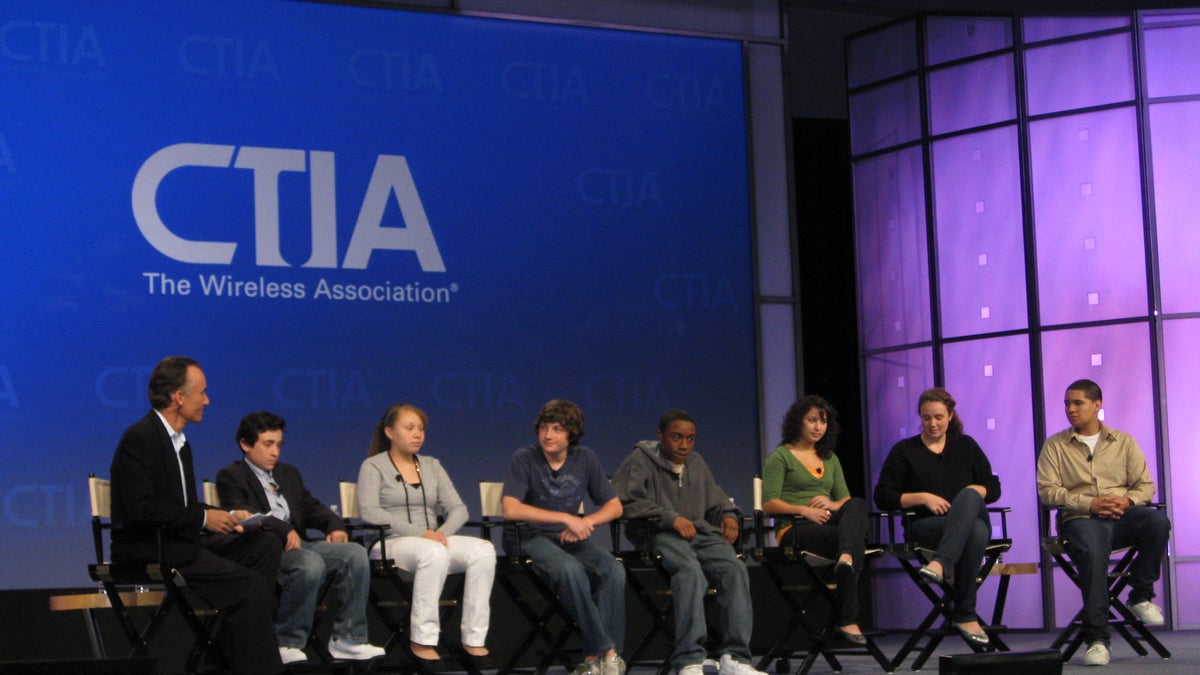Teens view cell phones as essential
A new nationwide survey shows the importance of cell phones in the lives of American teens. And yes, they want to have a "cool" one.

SAN FRANCISCO - Cell phones have become almost as important to American teens as the clothes they wear, according to a nationwide survey of teenagers released last week.
The wireless trade association CTIA and Harris Interactive surveyed some 2,000 teens across the country and learned that teens feel that cell phones have become a vital part of their identities. They also believe that they can gauge a peer's popularity or status by the phone he or she uses.
Findings of the survey were presented on Friday at the CTIA Fall 2008 trade show in San Francisco. Trip Hawkins, CEO of Digital Chocolate, a mobile games publisher, moderated a panel with seven teenagers ranging in age from 13 to 18 years old.
Adolescents represent an important demographic for cell phone makers and mobile operators as cell phones have become an integral part of teens' lives. About four out of every five teens carry a cell phone. This is up from 40 percent of teens owning a cell phone in 2004. And almost half of the teens surveyed today say that having a cell phone is "key" to their social lives.
"Leaving home without my phone almost feels like leaving the house naked," said Brenna, 17, who participated in the panel.
Another recent survey conducted by Nielsen revealed that kids are getting cell phones even before they hit their teens. Nearly half of kids age 8 to 12 years old own cell phones in the U.S, according to the Nielsen report. And on average kids get their first cell phone between the ages of 10 and 11 years old.
While many teens view having a cell phone as important for practical things like getting a ride or for safety reasons, many believe it also says a lot about them as people. According to the survey, about 28 percent of all teens and 34 percent of kids 13 to 15 years old said that having the latest cool cell phone is absolutely essential. A mother of a 14-year old boy on the teen panel said the social pressure to have a "cool" phone is intense.
"Marcus has told me that he is embarrassed for his friends to see his phone," Deundra, Marcus's mother, said on the sidelines after the panel discussion had ended. "I've literally had to pull the car over to have a conversation about why he would feel this way. We've had many talks about the true importance and value of things."
Most of the teens on the panel agreed that Apple's iPhone is the coolest phone on the market. But none of them owned one, largely because the devices are too expensive and so is the monthly service fee from AT&T.
Consistent with the findings of the survey, the teens on the panel said they text message as much as or more than they talk on the phone. And 42 percent of those surveyed say they could text blindfolded.
About a third of teens surveyed say they regularly play games on their phones and about 20 percent of them use their phones for social networking. The teens on the panel said they would be more willing to play games or surf the mobile Web, if those were no-cost activities.
About 59 percent of teens surveyed said they would be willing to provide personal information to wireless operators to receive targeted text messages. And roughly 40 percent of teens said they don't mind watching advertising if cell phone service is free.
The teens on the CTIA panel agreed with the results.
"We definitely like free," Brenna said.
But there are some services that some teens aren't too keen on. Roughly 36 percent of teens in the survey said they don't like buddy-tracking features that reveal their physical location to others. The teens on the panel also complained about poor battery life. Dean, 14, said he'd like phone manufacturers develop solar-powered phones.
"If they can do it for calculators, they should be able to do it for phones," he said.
According to the survey, teens also say they want phones that are waterproof and shockproof, are made of flexible materials that can bend, and have artificial intelligence that will provide answers to questions.

